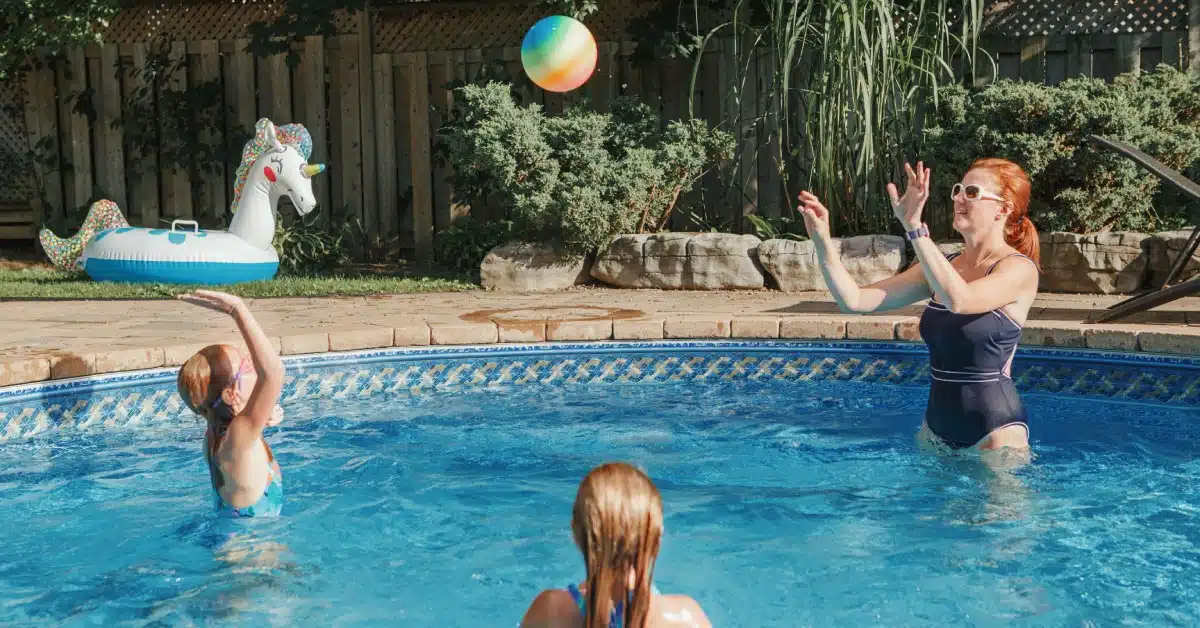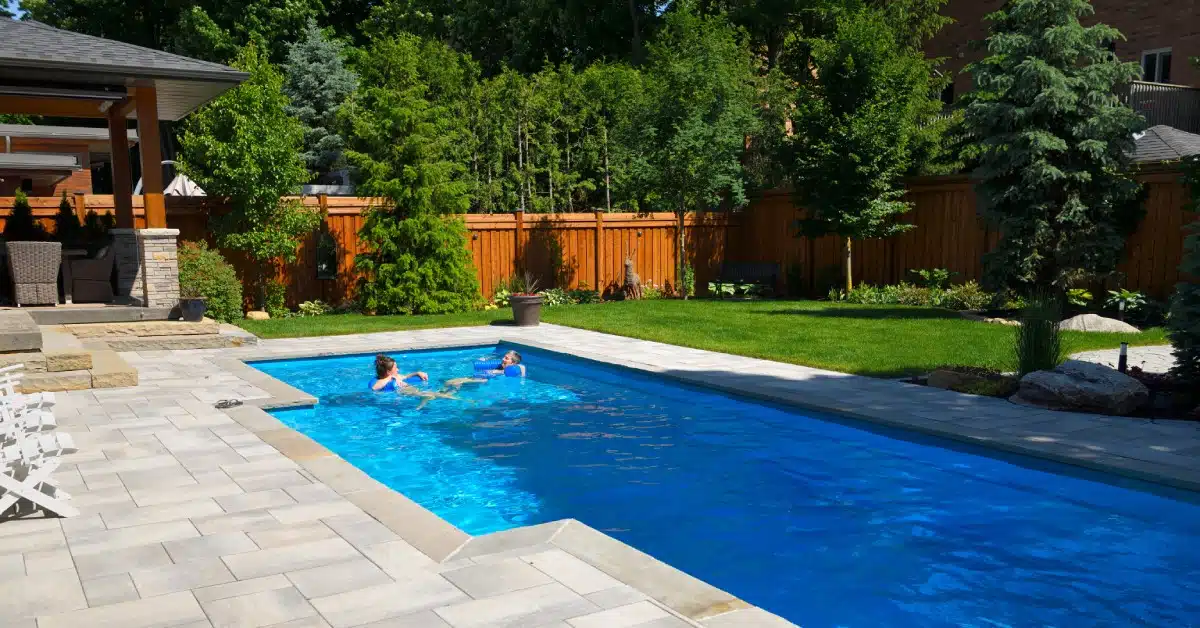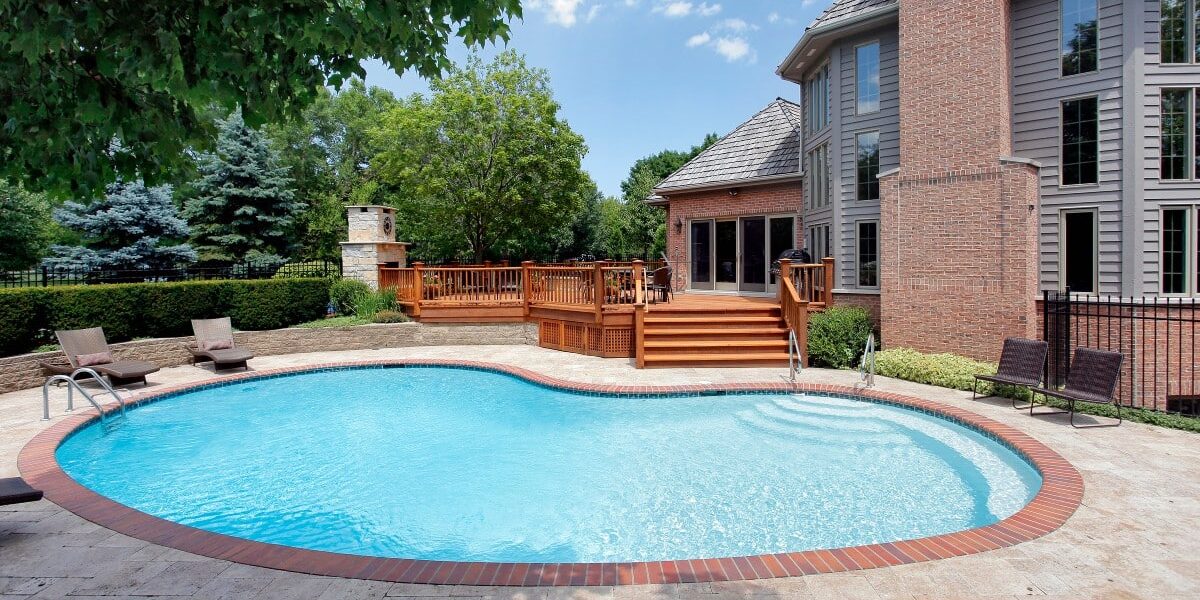Swimming should be enjoyable year-round, but cold water can cut your pool season short and leave your investment underutilized for months. Pool heaters solve this problem by extending your swimming season and maintaining comfortable water temperatures regardless of weather conditions. This comprehensive guide covers everything you need to know about pool heaters, from the various types available to selecting the perfect system for your specific needs and budget.
Types of Pool Heaters
Understanding the different pool heater options available will help you choose a system that best matches your climate, budget, and heating requirements. Each type offers distinct advantages and considerations.
Gas Pool Heaters
Gas pool heaters are the most popular choice for pool owners seeking rapid heating capabilities. These units burn natural gas or propane to heat water as it circulates through the system. Gas heaters excel at quickly raising water temperature, making them ideal for pools used occasionally or when you need fast results.
The primary advantage of gas heaters is their heating speed and reliability regardless of outside temperature. They can raise the pool temperature by several degrees per hour, allowing you to enjoy your pool on short notice. Gas heaters work effectively in any climate and maintain consistent performance, even during cooler weather.
However, gas heaters typically have higher operating costs compared to other options, especially with fluctuating fuel prices. They also produce emissions and require proper ventilation during installation. Despite these considerations, many pool owners choose gas heaters for their convenience and rapid heating capabilities.
Electric Resistance Pool Heaters
Electric resistance heaters function similarly to large water heaters, using electrical elements to warm pool water directly. These units are generally smaller and less expensive upfront than other heating options, making them attractive for budget-conscious pool owners.
Electric heaters work best in warmer climates where they need to raise water temperature by only a few degrees. They operate quietly and produce no emissions, making them environmentally friendly if your electricity comes from renewable sources. Installation is often simpler since these heaters don’t require gas lines or extensive ventilation.
The main drawback of electric resistance heaters is their high operating cost in most regions due to electricity pricing. They also heat water more slowly than gas heaters and can impact your electrical bill during heavy use periods.

Heat Pump Pool Heaters
Heat pump pool heaters use electricity to capture heat from the surrounding air and transfer it to pool water. Rather than generating heat directly, these heaters move existing heat from one place to another, making them highly energy-efficient when operating conditions are favorable.
These systems work most effectively when air temperatures remain above 45 to 50 degrees Fahrenheit. Heat pumps typically cost more initially than gas or electric resistance heaters but offer substantially lower operating costs over time. They can also reduce heating costs compared to gas heaters in suitable climates.
Heat pumps warm water more slowly than gas heaters, often requiring 24 to 48 hours to raise temperatures. They also become less efficient as air temperature drops, limiting their effectiveness in cooler climates or during winter months.
Solar Pool Heaters
Solar pool heaters harness free energy from the sun to warm pool water naturally. These systems circulate pool water through solar collectors, typically installed on your roof or in sunny areas of your property. Solar heating is the most environmentally friendly and cost-effective long-term pool heating option.
Once installed, solar heaters have virtually no operating costs since they rely entirely on solar energy. They can effectively maintain comfortable water temperatures during sunny periods and extend swimming seasons in most climates. Many solar systems include automatic controls that optimize heating based on available sunlight and desired water temperature.
Solar heaters depend entirely on weather conditions and provide inconsistent heating during cloudy periods or winter months. They also require vast roof space or ground area for collector installation and have higher upfront costs, including professional installation. However, many pool owners find solar heating pays for itself within a few years through lower heating bills.
How To Choose the Right Pool Heater
Selecting the appropriate pool heater requires careful consideration of your specific circumstances, including pool characteristics, local climate, and budget constraints.
Pool Size and Usage
Your pool’s volume directly impacts heater sizing requirements and operating costs. Larger pools need more powerful heating systems and consume more energy to maintain desired temperatures. Calculate your pool’s gallons to determine the appropriate heater capacity measured in British thermal units (BTUs).
Consider how frequently you use your pool and whether you need rapid heating capabilities. Occasional users might prefer gas heaters for quick temperature increases, while daily swimmers may benefit from heat pumps or solar systems that maintain consistent temperatures efficiently.

Climate Considerations
Your local climate influences which type of heater will perform best and most economically. Gas heaters work effectively in any climate, making them suitable for areas with temperature variations or cold winters.
Heat pumps perform optimally in moderate climates, where air temperatures rarely drop below 50 degrees, while solar heaters work best in sunny regions with long seasons of clear weather. Electric resistance heaters are most practical in consistently warm climates requiring minimal temperature increases.
Energy Efficiency and Cost Analysis
Compare upfront costs and long-term operating expenses when evaluating heater options. Gas heaters typically have lower initial costs but higher ongoing fuel expenses. Heat pumps cost more initially but offer substantial savings over time in suitable climates.
Solar heaters require the highest upfront investment but provide free heating once installed, and electric resistance heaters may seem affordable initially but often prove expensive to operate. Consider your local utility rates and fuel costs when calculating long-term expenses.
Installation and Maintenance
Proper installation supports optimal performance and safety for pool heater systems. Gas heaters require licensed professionals for gas line connections and venting installation, while electric heaters need appropriate electrical connections and may require service panel upgrades.
Installing solar systems requires structural expertise for roof installations or ground mounting, and heat pumps need adequate clearance for air circulation and proper refrigerant line installation. Always hire qualified technicians familiar with local building codes and manufacturer specifications.
Regular maintenance extends heater life and maintains efficiency. Gas heaters benefit from annual professional servicing to clean burners and check safety systems, while heat pumps require periodic cleaning of air coils and refrigerant level checks. Solar systems need occasional cleaning of collectors and inspection of circulation pumps.
Maximizing Your Pool Investment
Understanding everything you need to know about pool heaters transforms your swimming pool from a seasonal luxury into a year-round asset. With the right heating system, you’ll extend your pool season, making every day a potential pool day.
Gulf Coast Pool Consulting & Construction is a trusted pool remodeling and resurfacing company serving homeowners across Florida. With years of experience and a commitment to quality, we specialize in transforming outdated pools into stunning backyard retreats. Contact us today to discuss your needs and start creating the backyard oasis you’ve always dreamed of!

